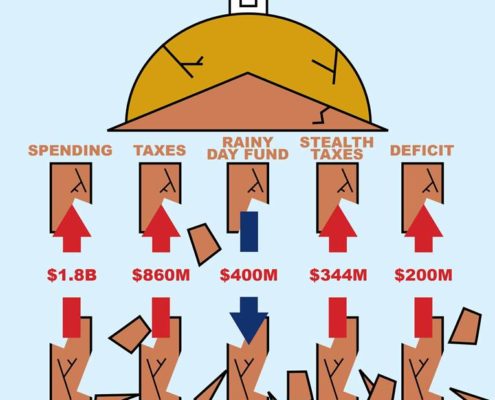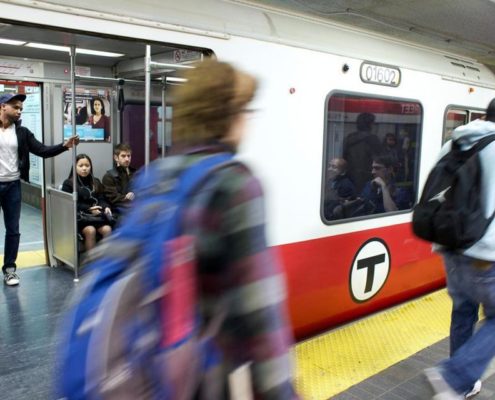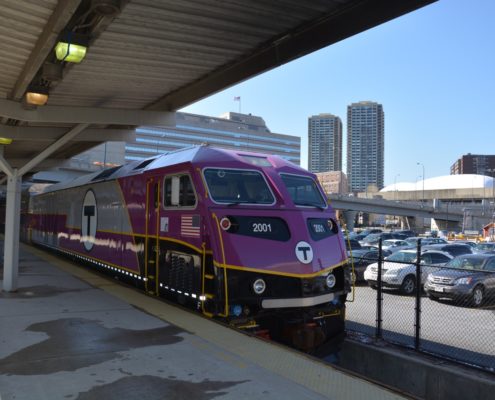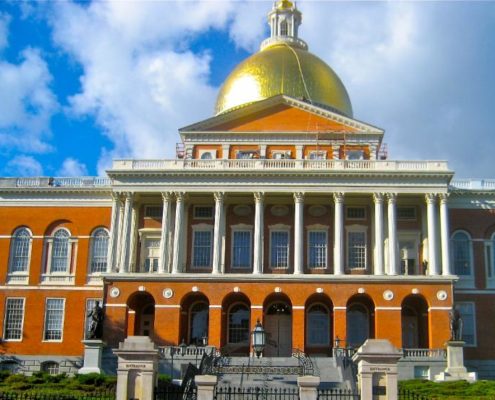
The Cost of Cost-of-Living Adjustments in Massachusetts Public Retirement Systems
0 Comments
/
While the recent pension reforms focused primarily on reducing the cost to the government, one component of the changes had the opposite effect: the legislation allowed local retirement boards the option of offering retirees a larger annual cost-of-living adjustment, or COLA. While Massachusetts has made its COLAs more generous, many retirement systems around the country have been reducing COLAs to save money.

Massachusetts’ Technology Tax an Unnecessary Detour
Governor Patrick now concedes it was a bad idea and it appears that the so-called tech tax will be repealed. Repeal will leave a $160 million hole in state transportation funding. But that hole need not be filled exclusively by new revenue. It can be filled by savings, revenue, or a combination of the two, and Pioneer Institute research shows there are plenty of savings to be had from a series of reforms.

Do We Need Them? How Many Retirement Boards Are Necessary to Provide Pension Benefits for Massachusetts Public Employees
Currently, there are 103 municipal, regional and agency retirement systems for public employees in Massachusetts, each administered by a five-person board and various numbers of board staff.

The Good, the Bad and the Ugly: Massachusetts’s 2014 Status Quo Budget
Pioneer has generally produced at the time of release of key budget documents a series of "The Good, the Bad and the Ugly" reports. The conference committee's fiscal year 2014 budget was circulated on the first of the month, just as the new fiscal year started.

MassPensions: How Difficult Is Institutional Transparency?
This policy brief introduces the MassPensions data accessibility tool by Pioneer Institute. MassPensions is a website presenting in clear and convenient format key data about the state of public employees' pensions in the Commonwealth of Massachusetts for the period 1985-2012. The low cost and fast turnaround of this project illustrate that government transparency is not always as complicated or expensive as it may seem.

The MBTA’s Out-of-Control Bus Maintenance Costs
This policy paper compares the MBTA's bus maintenance costs to those of other bus transit agencies and considers the causes of the T's inordinately high bus maintenance spending. Considering that the MBTA spent a whopping $832 million on bus maintenance between 2000 and 2011, any significant improvement in cost-effectiveness in this area is certain to translate into large savings.

Runaway Transportation Costs
Recent news demonstrates that the state’s transportation system has problems that go beyond a shortage of funding. The Boston Herald has reported that the MBTA doesn’t make public information available about how much they are paying out in pension benefits and who is receiving benefits.

Driving Reform: Real Solutions to Our Transportation Challenges
Reform is hard work. A massive injection of new money into Massachusetts’ troubled transportation system is no substitute for a serious plan that delineates clear and achievable goals, accountability for results, and provides the money to move forward.

Improving the Investment Performance of Massachusetts Pension Funds
The adoption of these reforms can significantly improve the performance of retirement systems statewide and reduce the costs of funding public pension benefits. Investment and payment planning will be facilitated by more predictable cash flows from investing activities, helping avert potential liquidity crises.

Fiscal Implications of Massachusetts’ Retirement Boards’ Investment Returns
Throughout the US, the number and scope of defined-benefit pension plans have been on the wane for over a quarter century. Many private-sector workers have had their benefits wiped out by bankruptcies and fire sales of distressed businesses despite the legislative push from pay-as-you-go to fully funded pension plans.

Introduction to the Massachusetts Transportation Dashboard
Pioneer's Transportation Dashboard is intended to communicate the performance of the state's transportation system and inform the public about the effectiveness of the state's transportation leadership. As a single-page of primarily visual communication, it necessarily simplifies the complex nature of the transportation system.

Massachusetts’ New Economy
"Massachusetts’ New Economy" was presented by Jim Stergios in 2011.

Creating Jobs: Reforming Unemployment Insurance in Massachusetts
As states and nations aggressively promote their business climates, the high cost of doing business in Massachusetts requires ongoing remediation for the Commonwealth to sustain its competitive advantage.

Rhetoric and Reality: Pension Benefits for Retired Massachusetts State Workers
The pension system for Massachusetts state workers and retirees has recently received a great deal of attention. Governor Deval Patrick signed reform legislation in June 2009, and additional reforms may be forthcoming. Much of the media coverage of pension issues has focused on sensational accounts of pension abuse.

Lowering the Bar to Get a Passing Grade
Southern New England School of Law (SNESL) is a regionally accredited law school located in North Dartmouth, Massachusetts. It was founded in 1981 and unsuccessfully sought American Bar Association (ABA) accreditation in 1997 and again in 1999.

Countdown to Fiscal Sanity
It took one day for the House of Representatives to raise the sales tax 25 percent. It took just one day for the Senate to do the same. (The Governor has taken longer to put out his tax increase proposals, which range from a 19-cent gas tax increase, hundreds of millions of dollars in soda, candy and other targeted fees, as well as consideration of a graduated income tax.)

Getting There: Transportation Reform in 2009
Transportation policy will play a prominent role in Massachusetts politics over the coming months. The Massachusett Bay Transportation Authority's (MBTA) structural deficit is projected to grow to $160 million in FY2010. The MassPike is facing an operating deficit and the potential implosion of its financing structure. MassHighway is scrambling to initiate a $3 billion accelerated bridge repair program that will leave us with hundreds of structurally deficient bridges even after it is done.

Start Here Before Cutting Into the Safety Net
This policy brief recommends $311 million in savings between now and the end of the fiscal year, through emergency and targeted cuts, returning the state workforce to 2004 levels, ending corporate welfare, and consolidating several state functions. By combining these with a $300 million withdrawal from the rainy day fund and a reasonable 4 percent cut in local aid ($200 million), the Governor could avoid further cuts to the safety net and core services.

Lessons Learned: An Assessment of Select Public-Private Partnerships in Massachusetts
Public-private partnerships are a much misunderstood and still-evolving innovation in transportation infrastructure. Viewed with great suspicion by some as a ‘selling off’ of public goods, it is viewed with great enthusiasm by others as a source of additional revenues. In Massachusetts, we see public-private partnerships through the lens of recent projects that used private sector participation. This study seeks to examine several of those recent projects to learn about the private sector’s role and its impact on the project.

Life Cycle Delivery of Public Infrastructure
Life-cycle delivery of infrastructure projects demands our attention. As the Commonwealth faces the interlocking threats of massive finding deficits, creeping levels of deferred maintenance, and unabated demands for expansion, public-private partnerships (PPPs) offer some potential relief.

Hard Decisions, Needed Leadership
This report seeks to identify savings to help close a looming $1 billion to $1.5 billion gap in the Commonwealth's FY09 budget. As a follow-up to a Pioneer press release outlining $600 million in immediate cuts, dated October 8, 2008, we have scoured the budget for savings and reforms, with an eye toward actions that can be undertaken immediately. This report identifies $700 million in budget savings.

Additional Reforms for the Governor’s Accelerated Bridge Repair Proposal
The Governor's proposal to fix structurally deficient bridges is an aggressive approach to addressing the massive backlog of deferred maintenance in the Commonwealth. To be sure, this approach does not create revenues, it only accelerates planned future spending. However, this acceleration will result in greater value by fixing hundreds of decaying bridges sooner rather than later; thereby avoiding the effect of construction inflation and higher future repair costs due to ongoing deterioration.

Shades of Green
This question is listed on the website for Gloucester’s Conservation Commission under “Frequently Asked Questions.” The Commission’s response is that all wetlands, including small seasonal wetlands, help clean stormwater, serve as drainage areas and provide habitat for many species.

Unemployment Insurance in Massachusetts
High unemployment insurance taxes deter job creation and burden Massachusetts businesses. The current system also subsidizes certain workers and business sectors, at the expense of most Massachusetts workers and companies.

Fixing Maintenance in Massachusetts
The horrifying spectacle of the Minnesota bridge collapse has prompted a national reevaluation of the condition of our public infrastructure. In Massachusetts, two recent reports have found a multi-billion dollar backlog of deferred maintenance.

The Cash Incentive Safety Initiative
The City of Gallup, NM, like many governmental bodies that employ field crews, suffered from an ever-increasing number of worker's compensation claims and associated annual increases in worker's compensation insurance premiums. The implementation of the Cash Incentive Safety Initiative has both improved the health of employees and reduced costs associated with absent and injured workers. As explained below, there is real potential for similar programs to benefit municipal and state governments nationwide.

MyFloridaMarketPlace
In 2000, the Florida state legislature approved funding for an online e-procurement portal called MyFloridaMarketPlace. The project was overseen by Florida's Division of Management Services (DMS), which contracted with Accenture in the fall of 2002 to create and manage the portal.

Reducing Unnecessary Institutionalization of Senior Citizens
This proposal involves collecting and integrating existing data on the health of elderly patients. This information would be used to construct patient profiles to help predict and prevent unexpected incidents. A data-driven coordination of programs and services would aid in early interventions, and also help evaluate how different strategies, programs, and agencies could reduce unnecessary nursing home institutionalization.

Extending the Stat Model Across the Commonwealth
After nearly a decade of evolution, municipal Stat programs, such as NYPD'sCompStat and Baltimore's CitiStat, have proved very successful in improving city service delivery and cutting unnecessary spending. Though slightly different in each implementation, all Stat programs involve frequent meetings at which key decision-makers and department heads review data on operational performance, identify problems and solutions, and track follow-up. The City of Baltimore reported $70 million in savings attributable to CitiStat in its first three years of operations. In Massachusetts, Somerville has run its successful SomerStat initiative for close to three years, and reports $10 million in realized or anticipated savings. Expansion of the Stat program holds tremendous potential for the Commonwealth's cities and towns, as well as state government.

Repair, Replacement, Renovation and Maintenance Program
The Repair, Replacement, Renovation and Maintenance (R3M) Program concept is a strategy for managing Hillsborough County's physical assets. The purpose of the R3M Program is to protect investment in infrastructure, reduce the maintenance backlog, control and reduce costs, minimize waste, and to maintain public buildings and facilities in a safe and efficient condition.
